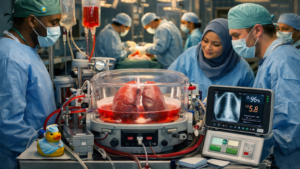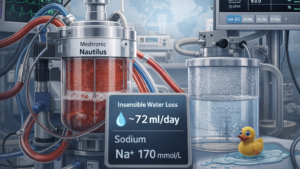
Outcomes of Heart Failure Hospitalizations at Urban Teaching vs. Non-Teaching Hospitals: A Nationwide Propensity Score Matched Analysis in the United States
This nationwide propensity-matched study of 7.5 million U.S. heart failure hospitalizations (2016–2022) found that urban teaching hospitals had higher inpatient mortality, complication rates, length of stay, costs, and palliative care consultations compared with urban non-teaching hospitals. Despite worse in-hospital outcomes, 30- and 90-day readmission rates were similar. Findings likely reflect referral bias and greater illness severity at teaching centers rather than differences in care quality.










